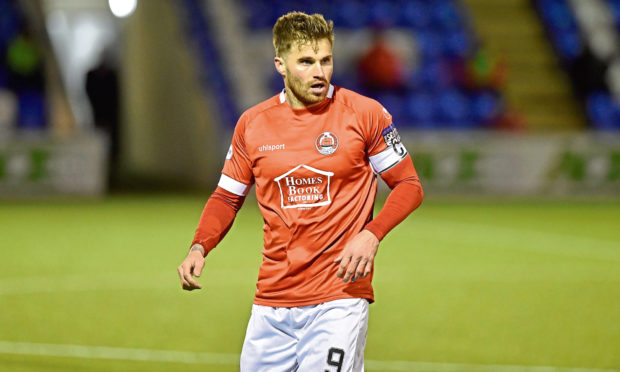It has been a very painful week for football as stories related to sexual violence and abuse have made the headlines.
In Scotland, Raith Rovers eventually said they would ditch David Goodwillie – found to be a rapist in civil court in 2017 – after a huge public outcry over their deadline day signing.
I wasn’t surprised to see the scrutiny from supporters and wider society – as well as the loss of sponsorship – finally resonate with the Championship side’s board.
However, before their U-turn, Raith compounded an immoral move to allow striker Goodwillie to return to full-time football with a disgraceful statement defending the decision and pointing to their view the player’s ability on the pitch was the most important thing.
Raith’s initial position highlighted many people involved in football clubs still think success on the field and financial gain come ahead of the wellbeing of society and the community they are supposedly representing.
I have no doubt Goodwillie would’ve taken to the pitch for his new club, had it not been for the many who loudly condemned the signing and refused to let it stand.
The last week has laid bare a reality of the football world – that the journey to reach a place of zero tolerance of violence against women within the game is a long road.
Question over how Goodwillie signing made women feel, but men can help too
As Scotland captain, I was given the chance to speak on Raith’s actions by the media several times over the last few days, and it bothered me a lot of the narrative was focused on what signing someone with a past like Goodwillie’s meant for women and girls involved in football as players or supporters.
It’s undoubtedly a valid question to some degree. It’s rational some women and girls may be more worried about continuing to involved in football, if it is an environment where they feel like female safety is a secondary consideration.
But – given we’re talking about the unacceptable behaviour of men in a male-dominated sphere – what did men think about the move? Surely Goodwillie’s past misconduct should have left men as revolted by the signing as women were?
Behaviour like this should be something nobody wants to be associated with, personally or through an association with a football club. Holding people who commit such acts accountable, with real consequences going forward, is how we stop them happening – rather than dismissing them as someone’s private business and as something which shouldn’t get in the way of their career.
If we really want to make football a welcoming space for female players and fans, action needs to be far more forthcoming from clubs, which are still dominated by males and have traditionally been testosterone-charged spaces.
The last week has confirmed to us there are still environments in the game where bad behaviour is tolerated, or certainly ignored.
I had a conversation through the week with someone I have great respect for within the men’s professional game. We wondered how many clubs are actively doing anything to change attitudes and have any policies and procedures in place to help to address the continuing problem with violence against women.
I imagine most clubs wouldn’t want to answer that question, because the answer is very little.
More needs to be done and maybe asking these questions will incite those in positions of power within football to act.
English heavyweights set up League Cup showdown
The Continental League Cup finalists were decided midweek and the final is set to be a cracker, as two of England’s most in-form sides will meet on March 5 in Wimbledon.
Chelsea were first to book their spot in the showpiece, as Emma Hayes’ side continued on an incredible run of reaching domestic finals. They overcame Manchester United in a 3-1 win which saw all the goals come in the opening 40 minutes.
Guro Reiten was arguably the star performer and, after scoring two goals at the weekend in Chelsea’s FA Cup battle against my team Aston Villa, she turned provider this time for both Pernille Harder and Jess Carter.
Both of those goals came either side of a Jessie Fleming header which made sure there was no way back for United. Vilde Boa Rise did reduce the scoreline briefly to 2-1, but it would turn out to be a consolation on the evening.
The second semi-final – between Manchester City and Spurs – again saw most of the action come in the first half.
Jess Park scored and then assisted twice as Khadija Shaw and Lauren Hemp ensured City kept their hopes of silverware this season alive.
City’s first half goals killed most of the anticipation for what was expected to be an exciting game between two of the WSL’s top teams.
Elsewhere, Everton will be led by interim head coach Chris Roberts for the foreseeable future, after the sacking of Jean-Luc Vasseur midweek. The experienced Scottish coach was assistant to former manager Willie Kirk.
UWCL ties get platform they deserve
The Uefa Women’s Champions League will return next month and, while most fans of the clubs involved will be eagerly waiting to see their sides in action again in the competition, there was some added excitement announced midweek.
It has been confirmed all legs of Wolfsburg v Arsenal and PSG v Bayern will played at their respective clubs’ main home stadiums.
The news adds to the sellout crowd already publicised for Barcelona’s quarter-final against Real Madrid at Camp Nou.
